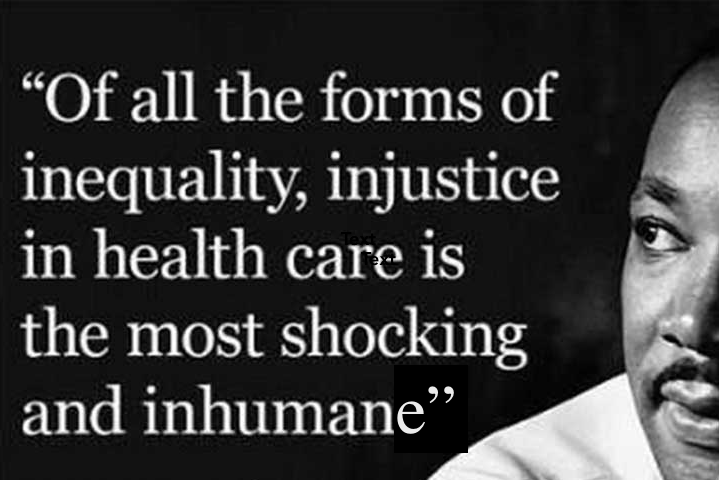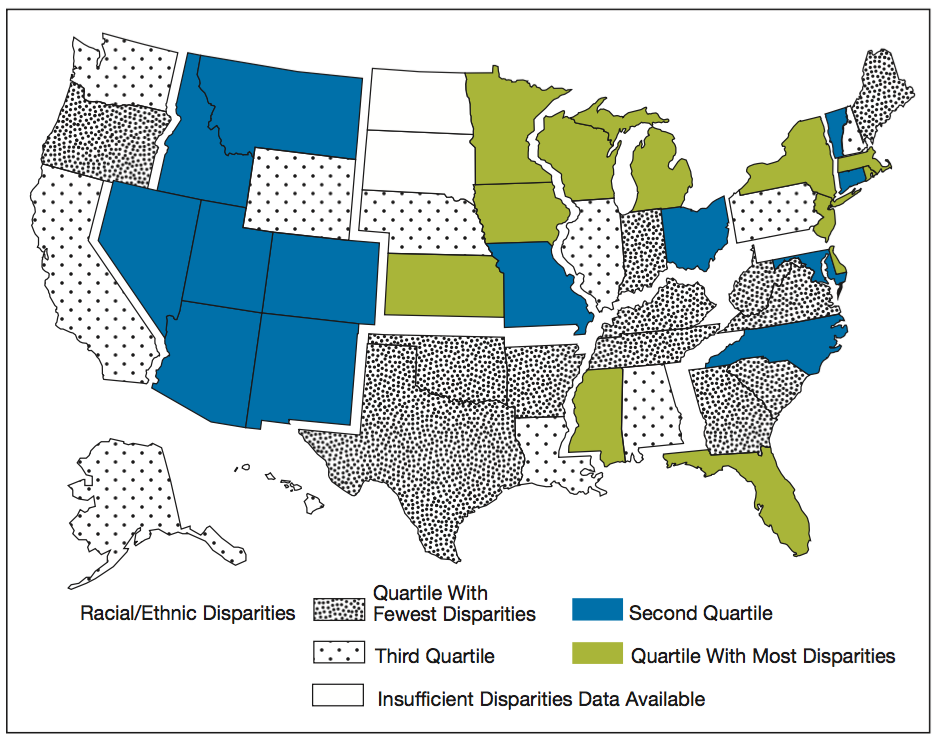Martin Luther King, Jr.: Healthcare Inequality is "Inhumane"
On Martin Luther King, Jr. Day, we celebrate the life of the most iconic civil rights leader in American History. We watch video of his speeches, read from his vast published works, and try to honor his leadership in a time when speaking out cost him his life. What often goes unnoticed, however, is that Dr. King found the inequality in healthcare one of the most insidious forms of injustice in America. This quote sums up his view of healthcare at the time and is still true today:

Below is an excerpt from an article I published in 2016 analyzing healthcare inequality in the United States. Dr. King would say his dream is yet to be fulfilled in healthcare.
_____________________________
Healthcare in America - Is Justice Served?
By any measure, the healthcare capabilities of US-based hospitals and health centers are the best in the world. With leading institutions such as Mayo Clinic, Cleveland Clinic, and many other healthcare systems, the knowledge of evidence-based care generated at these institutions gives US residents the opportunity to receive top-notch care.
Or does it?
Introducing the 2014 AHRQ National Healthcare Quality and Disparities Report. This annual scorecard measures different ways healthcare doesn't reach the "underserved" defined as the poor, people of color, the disabled, rural, and seniors. Across all measures of access, quality, and outcomes, underserved populations trail that of the general population. Is that justice?
For example, in one graphic AHRQ ranks each US state in quartiles by the quality of healthcare delivered:
On a second graphic, AHRQ charts each US state by the level of disparity in healthcare delivered based solely on race:
(Note: A similar analysis was NOT completed in the 2015 AHRQ report)
An analysis of these charts (which AHRQ curiously didn't do themselves), one can see the states in which the highest level of care is delivered, while also having the highest level of disparity of care based on race. Six (6) states fall into that dubious group: Iowa, Wisconsin, Minnesota, Massachusetts, Rhode Island and Delaware (Michigan, Pennsylvania, NY and NJ are in the second highest quartile of quality, but also have the highest level of disparity).
Again, these six states have the capability to deliver the highest quality of care for their residents--but also sport the highest disparity levels of healthcare access, quality, and outcomes based solely on the race of patients.
Is this justice?
Further complicating this picture is a recent study by researchers at Johns Hopkins Medicine published in The BMJ (formerly British Medical Journal) stating that if medical errors were counted correctly, they would rank third on the list of causes of death in the US behind cardiovascular disease and cancer. The researchers penned an open letter to the CDC asking them to update their data collection methods to account for avoidable medical errors as a cause of death, not simply the underlying disease that led to the need for acute care. Their methodology in coming to that conclusion could also be applied to the environments in which healthcare disparities exist by race.
It doesn't take a scientist to recognize that a disproportionate level of medical errors likely occur to those in underserved populations. There is no accountability for avoidable medical errors in the same manner that (theoretically) the criminal justice system could apply accountability for broken laws because those medical errors are not counted.
If a disproportionate amount of the 250,000 suspected avoidable medical errors that lead to death in the US happen to patients in underserved populations because of poor quality being delivered, isn't that the same as unconscious bias (or perhaps conscious discrimination) leading to different treatment of people of color by law enforcement and the criminal justice system? Both groups have the capability of delivering better outcomes in the moment, but "somehow" the most optimal outcomes are not achieved.
Is that justice?
Healthcare providers do noble work. So do police officers. They are people we respect in our communities and need to perform at their highest levels to reach our best quality of life. Can we improve accountability and reporting to help increase quality and drive better outcomes for all? I believe we can.
Leading Toward Justice
Leading toward justice requires acknowledgement that injustice exists. Health disparities are a form of injustice and many organizations are standing up to research and fix the problem. These organizations have clearly identified the injustice in health disparities and are taking steps to eliminate them. Bravo.
Now it's time for action and results.
Care3 is built to battle inequities and disparities in healthcare using mobile and social technology. We welcome the opportunity to partner with healthcare entities such as hospital systems, health plans, community hospitals, and community-based care management firms in initiatives where measurable impact can be achieved with underserved populations.
About David S. Williams III
David S. Williams III is a leading innovator in consumer digital health. Care3 is inspired by David’s experience caring for his special needs son and the realization that the most vulnerable members of our society including seniors, people of color, and the disabled do not have equal access to healthcare and receive woefully inadequate quality of care in their homes and communities. Care3 is built to fix these unacceptable and unnecessary inequities.



